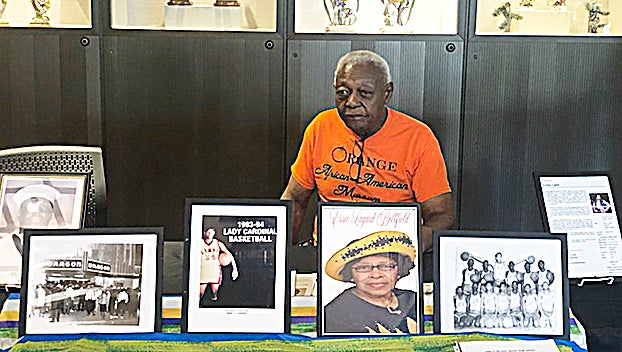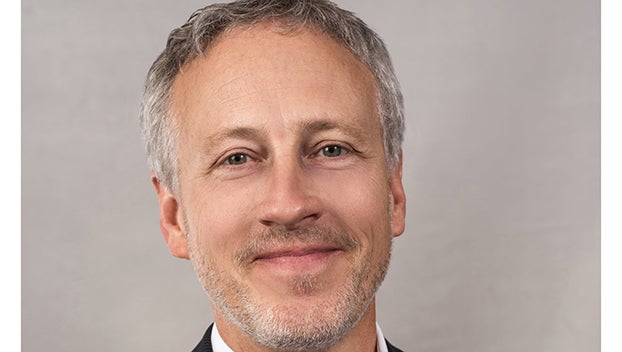A collision with the Constitution exposes possible collusion in Bridge City
Published 7:13 pm Saturday, May 5, 2018
By Bobby Tingle
Evidence of possible collusion has bubbled to the surface in city council meetings recently in Bridge City. Collusion runs rampant in the swamp of Washington, D.C.
Collusion has become a dirty word in recent months. It is the manifestation of people getting together to achieve a common goal, sometimes covertly and possibly for illegal gain.
According to recent reports posted in print and online by The Orange Leader, it appears citizens may have colluded to share their three minutes allotted to citizens to voice concerns to the council.
They invoked the constitution as the basis of their right to do so. As evidence of this right, they reminded the council in Washington, D.C. congresspersons yield their time to other members during their deliberations.
One can only presume this is the Constitution which grants our freedoms of speech, worship, assembly and the press among other things.
But does it guarantee a right to yield some or all of your 180 seconds of speech at a Bridge City Council meeting?
Joseph Hannan, a Bridge City resident and candidate for city council, made this claim in a recent council meeting as reported by The Orange Leader in the April 7, 2018 edition.
The article noted Hannan had already been allotted 180 seconds to make his feelings known. As a candidate for city council, Hannan claimed to have spoken with citizens who alleged being ignored by councilpersons.
City Attorney Paul Fukuda denied the yielding of time from one citizen to another. Later in the meeting, Fukuda explained there is simply no provision for doing so either in the rules governing citizen comments or the Constitution.
Hannan disagreed, once again invoking his constitutional rights based on having seen congresspersons yield their time.
The article did not say whether he witnessed this right on C-Span or in person.
Fukuda then seemed to muddy the waters of understanding by raising questions about the current policy.
His comments seemed to focus on a lack of clarity related to how council must respond to expressed citizen concerns and whether all citizen requests are automatically approved for consideration.
Does this mean the door is open for the council to collude against taking up a specific citizen’s concern?
Rules are a human invention and therefore subject to interpretation and error. But rules are good and ought to be followed.
An article in the April 21 edition of The Orange Leader reported the council met for a workshop to consider the rules governing citizen’s concerns requests and their response.
According to the article council policy ‘unambiguously states how items may be placed on the Agenda’. The Mayor, City Manager, City Attorney or two members of the City Council can do so.
It appears the issue, according to Hannan, is his request was never placed on the agenda.
Was his request treated with indifference? Did he bring up an issue the council did not want to address?
The Orange Leader then reported May 2 in an article published at www.orangeleader.com and on the front page of this edition, Bridge City Mayor David Rutledge stated the “Supreme Court has decided that you don’t have to put a citizen on the agenda.”
Say what?
Council member Carl Harbert confronted Rutledge in his assertion citing a historical precedence of allowing citizens to speak to the council.
Rutledge countered, at first agreeing, then implying he should be the one to determine which citizen requests are heard and considered.
Elected officials should be responsive to those whom they represent. The rules of engagement should be clear and adhered to. It seems some in the Bridge City community are unwilling to follow established policy.
This can only lead to a breakdown of trust and confidence.
Elected officials in Bridge City have an obligation to clear up the confusion and follow established procedures. Any changes to policy should be discussed and determined in a transparent manner.
Bridge City residents also have an obligation to engage the council with respect and patience. Conducting the city’s business is not an easy task.
According to the Texas Open Meeting Act, a meeting that is “open to the public” under the Act is one that the public is permitted to attend. The Act does not entitle the public to choose the items to be discussed or to speak about items on the agenda. A governmental body may, however, give members of the public an opportunity to speak at a public meeting. If it does so, it may set reasonable limits on the number, frequency and length of presentations before it, but it may not unfairly discriminate among speakers for or against a particular point of view.
Many governmental bodies conduct “public comment,” “public forum” or “open mike” sessions at which members of the public may address comments on any subject to the governmental body.
A public comment session is a meeting as defined by section 551.001(4)(B) of the Government Code because the members of the governmental body “receive information from . . . or receive questions from [a] third person.” Accordingly, the governmental body must give notice of a public comment session.
The Act permits a member of the public or a member of the governmental body to raise a subject that has not been included in the notice for the meeting, but any discussion of the subject must be limited to a proposal to place the subject on the agenda for a future meeting.
Bobby Tingle is publisher of The Orange Leader. You can reach him at bobby.tingle@orangeleader.com.





